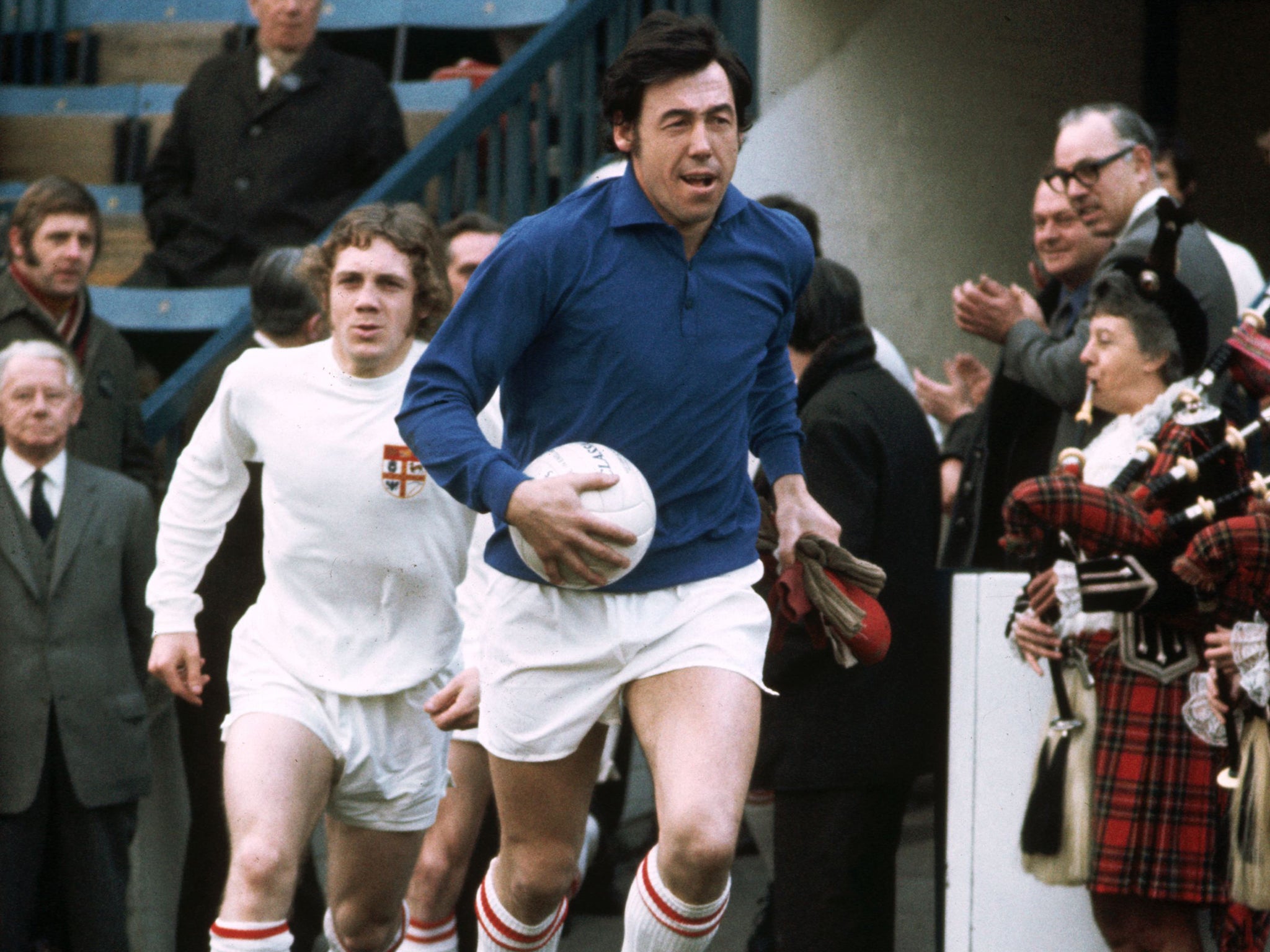Stoke City vs Arsenal: Bad blood dates back to 1970s Cup semis and 'offside' winner
'I don’t think about them when we’re not playing them, but every time we do, they are the enemy'

Your support helps us to tell the story
From reproductive rights to climate change to Big Tech, The Independent is on the ground when the story is developing. Whether it's investigating the financials of Elon Musk's pro-Trump PAC or producing our latest documentary, 'The A Word', which shines a light on the American women fighting for reproductive rights, we know how important it is to parse out the facts from the messaging.
At such a critical moment in US history, we need reporters on the ground. Your donation allows us to keep sending journalists to speak to both sides of the story.
The Independent is trusted by Americans across the entire political spectrum. And unlike many other quality news outlets, we choose not to lock Americans out of our reporting and analysis with paywalls. We believe quality journalism should be available to everyone, paid for by those who can afford it.
Your support makes all the difference.It has been a while since the Britannia Stadium last saw a long-ball carpet bombing campaign. Stoke City’s old style of play upset many opponents, none more so than Arsenal, the Premier League’s aesthetes, who visit on Sunday.
In recent times, this fixture has become defined by leg-breaks, headlocks and a keen mutual dislike. It is not a new rivalry, however, but an old one resurrected.
“The bad blood goes a long way back,” explains long-time Stoke supporter Ian Webb – to the 1971 FA Cup semi-final, to be precise, when a controversial late penalty earned eventual Cup-winners Arsenal a replay. A year later, history repeated itself at the same stage of the competition, in more preposterous circumstances.
“We were both playing in away strips, Arsenal in yellow and blue, Stoke in an all-white kit. The score was level when late on our defence was opened up and one of their players – it might even have been Charlie George – was yards offside as the ball was knocked through.”
Linesman Bob Matthewson kept his flag down, however, and allowed a cross from the byline to find striker John Radford, who lunged to score past a stranded Gordon Banks.The goal stood. Stoke’s players and support were incensed.
According to Banks’s autobiography, team-mate Jackie Marsh shot a tirade at the official that “would have made a navvy blush”. Arsenal’s physio Fred Street, who had joined the club from Stoke, was discouraged from consoling his former colleagues after the game because they were “a bit violent at the moment”.
Matthewson’s decision seemed indefensible until, as Webb recalls, an explanation emerged. “He had mistaken an ice-cream seller in white overalls for our last defender.”
Actually, according to most accounts it was a programme seller; others suggest he was peddling nuts. The minor details were forgotten but the ill feeling remained.
“As soon as we got promoted, many of us found ourselves looking forward to the Arsenal home game more than any other,” says John Paterson, who has watched the club for over 50 years. Stoke won that first top-flight meeting of the new millennium, with two goals turned in off Rory Delap’s long throws.
Arsenal manager Arsène Wenger later suggested a rule change, kick-ins rather than throw-ins, to counteract “an unfair advantage… a strength that is usually not a strength,” and the enmity between the clubs took on its current form.
Mark Hughes’s side may have more in common with their opponents than any team drilled by Tony Pulis but, as Paterson admits, little else has changed. “I don’t really think much about them when we are not playing them but every time we do, they are the enemy,” he says. “Most of my generation feel the same way and the younger ones have learned from us.” And so the inherited hostility goes on.
Join our commenting forum
Join thought-provoking conversations, follow other Independent readers and see their replies
Comments